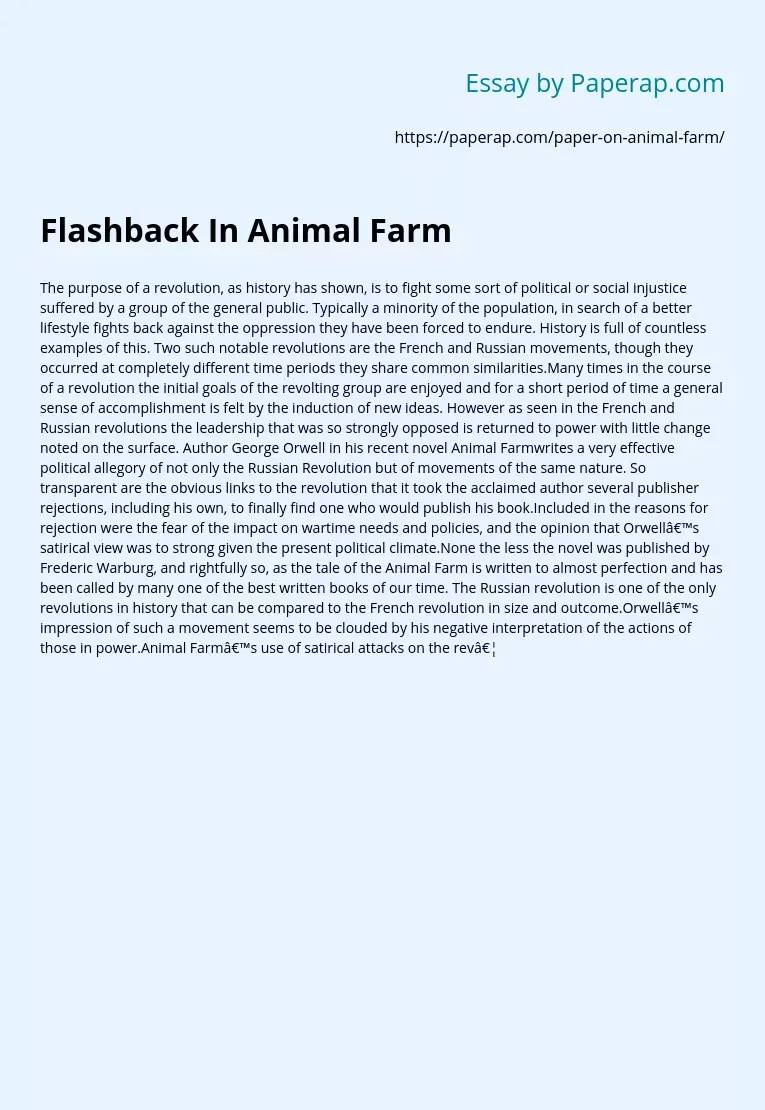"Animal Farm" by George Orwell
The purpose of a revolution, as history has shown, is to fight some sort of political or social injustice suffered by a group of the general public. Typically a minority of the population, in search of a better lifestyle fights back against the oppression they have been forced to endure. History is full of countless examples of this.
Two such notable revolutions are the French and Russian movements, though they occurred at completely different time periods they share common similarities.Many times in the course of a revolution the initial goals of the revolting group are enjoyed and for a short period of time a general sense of accomplishment is felt by the induction of new ideas.
However as seen in the French and Russian revolutions the leadership that was so strongly opposed is returned to power with little change noted on the surface.
Author George Orwell in his recent novel “Animal Farmwrites” a very effective political allegory of not only the Russian Revolution but of movements of the same nature.
So transparent are the obvious links to the revolution that it took the acclaimed author several publisher rejections, including his own, to finally find one who would publish his book.Included in the reasons for rejection were the fear of the impact on wartime needs and policies, and the opinion that Orwell’s satirical view was to strong given the present political climate.
None the less the novel was published by Frederic Warburg, and rightfully so, as the tale of the Animal Farm is written to almost perfection and has been called by many one of the best written books of our time.
The Russian revolution is one of the only revolutions in history that can be compared to the French revolution in size and outcome. Orwell’s impression of such a movement seems to be clouded by his negative interpretation of the actions of those in power.
"Animal Farm" by George Orwell. (2019, Dec 05). Retrieved from https://paperap.com/paper-on-animal-farm/

